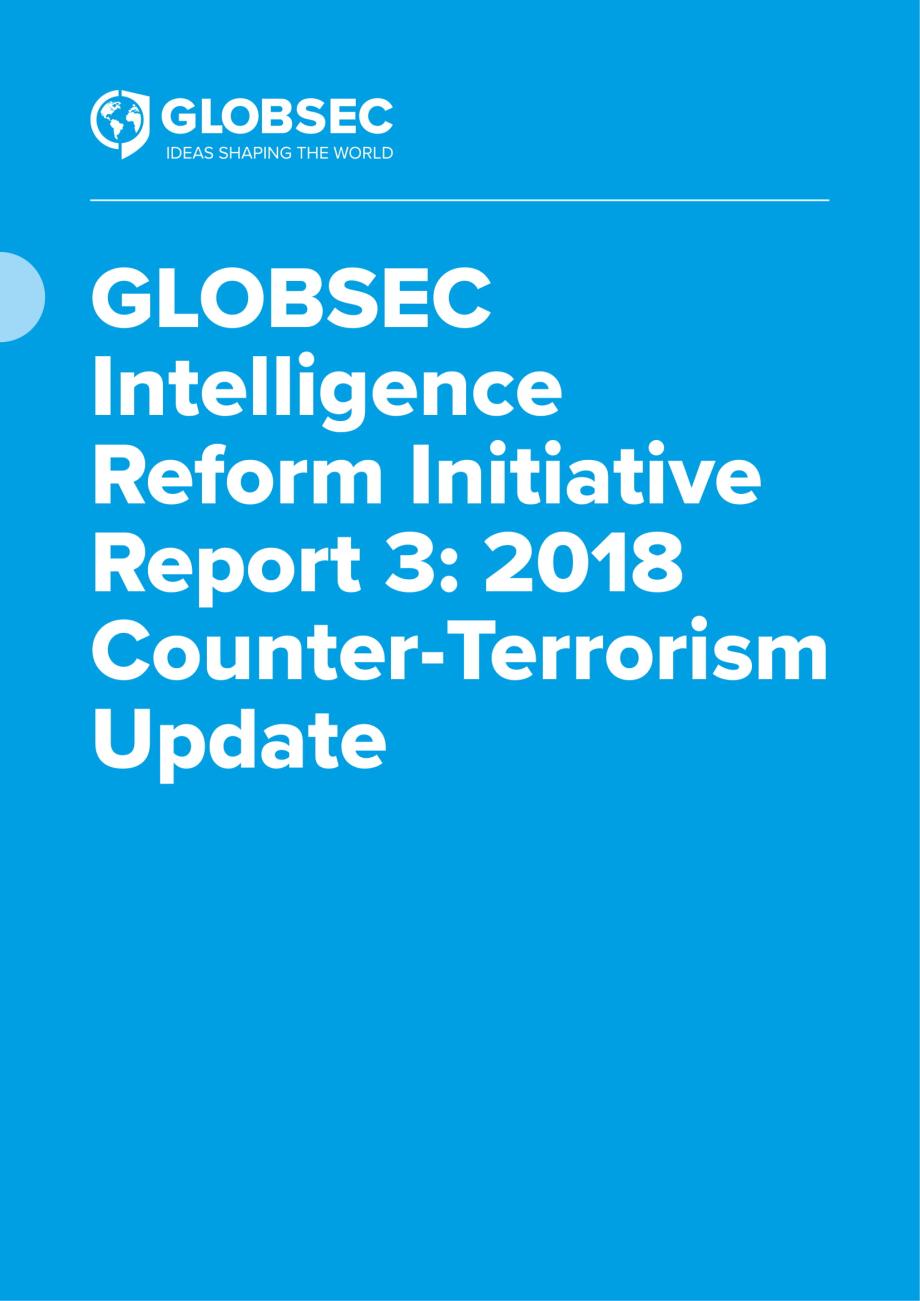GLOBSEC Intelligence Reform Initiative Report vol. 3

Since the May 2017 release of GIRI’s last report, Towards a Transatlantic Counter-Terrorism Centre of Excellence, the European Union (EU) and the United States (US) have witnessed a further 15 Islamic State in Iraq and the Levant (ISIL) related terrorist attacks. Although we are fully aware of the growing threat from far-right terrorism, and the persistent threat from other terrorist groups in some nations, complementing our last reports, the main focus of this report is on jihadist terrorism as this has continued to cause the greatest number of casualties in the transatlantic space. The summer of 2017 also marked the high point of jihadist attacks in Europe in terms of casualties, but it is interesting to note that there has not been a major attack reported in the EU or US so far in 2018. Nevertheless, it is dangerous to believe that the jihadist terrorist threat in general, and that of ISIL in particular, has fully diminished. It is more likely that the group is regrouping, and will emerge as something else, somewhere else.
Meanwhile, as this report highlights, numerous positive developments in the counter-terrorism (CT) field have been made at both the international and national levels. These underscore that both the EU and numerous national governments are gradually revising and/or introducing new legislation to address the evolving threat. In general, the legislative approach can be divided into three main elements: the introduction of new physical and digital surveillance laws and limitations on the freedom of movement of terrorist suspects; tougher sentences for convicted terrorists; and better funding of CT intelligence and police agencies alongside the recognition that better institutional cooperation at both the national and international level is desirable. These legislative reforms have been complemented by progress integrating EU data platforms and increased technical measures to deter terrorists from attacking public spaces, detect them in cyberspace and through financial transactions. Nevertheless, reflective of different threat levels and national cultures, there remain major differences in the approaches adopted between individual EU member states, the wider international community and the emphasis they place on each of the above elements in countering jihadist terrorism. The same is true of the wider international community. Similarly, a lack of capacity, capability, trust and information exchange between intelligence and police agencies at the national level in some countries – and at international level in many countries – remains.
It is clear from this update that the recent past has seen numerous legislative and practical responses to the evolving jihadi terrorist threat in Europe and beyond at both the multinational and national level. The cross-cutting themes identified above include returning foreign fighters; the denial of citizenship; disrupting the terrorist financial flows; control of firearms; and protective security. Indeed, for an organisation with 28 Member States, the EU has responded in a relatively rapid, coherent and comprehensive way to the new threat. Nevertheless, some of the proposed Directives and measures still need to be approved by the Parliament and implemented at the national level, while others, especially data platforms, need to be designed and operationalised.
Related to the introduction of new legislation in the many Member States is their potential impact on the fundamental tenets of trust and relationships? This includes trust within society, trust between member states, trust within law enforcement sectors. Indeed, in certain quarters such new legislation and advances in surveillance techniques to protect against the evolving terrorist threat are viewed as potential breaches of human rights. As such it remains to be seen if one effect of introducing these new legislative solutions could be to threaten relationships with nations that have different legislative cultures. While the direction of travel does seem to be toward greater cooperation if this trust is fractured it will undermine the goal of the mutual exchange of information between states, agencies, and communities. Finally, these developments have not addressed the problems of a lack of trust and differing capabilities impeding CT cooperation at both the national institutional and multinational levels.
GIRI´s main focus for the next year, therefore, is the establishment of a transatlantic Centre of Excellence where current mid-level CT professionals can meet, exchange best practices and build personal and professional trust. GIRI thus seeks to support the establishment of a university-accredited transatlantic CT course. This education/training should be a cooperation between three world-leading universities in the US, UK, and Central Europe. The goal is to establish a non-governmental educational body without ties to specific nations, and to help this body, in cooperation with selected national intelligence schools, to develop very high quality, practitioner intelligence training based on best practices to a core of trusted transnational professionals. Numerous nations have expressed a desire to support and participate in this initiative, and GIRI is currently looking to confirm political support for our pilot scheme to be rolled out in the Autumn of 2018.
To support this concept, GLOBSEC is also examining the establishment of a ‘Transatlantic Circle of Trust and Coordination’ under the GIRI umbrella. The objective of the Circle would be to gather selected persons from governments, finance, and industry to discuss (informally) threats to democracy and critical infrastructure, and how these threats should be collectively met.
GIRI will be exploring this concept and continue to develop our links with other international organisations through 2018 and beyond.